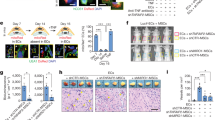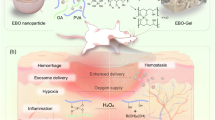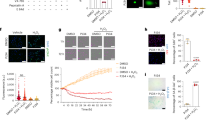Abstract
We tested whether NG-nitro-L-arginine methyl ester (L-NAME), an inhibitor of nitric oxide (NO) synthesis, can prevent interleukin 2 (IL-2)-induced capillary leakage in tumour-bearing mice without compromising the therapeutic benefits of IL-2. C3H/HeJ female mice transplanted s.c. with 2.5 x 10(5) C3-L5 mammary carcinoma cells were treated with: nothing, IL-2 (ten injections of 15,000 Cetus units i.p. every 8 h), L-NAME (0.1, 0.5, or 1 mg ml-1 drinking water), IL-2 + L-NAME (0.1 or 0.5 or 1 mg ml-1 drinking water). Therapies were given in one round (IL-2, days 10-13; L-NAME, days 9-13) or in two rounds (IL-2, days 10-13 and 20-23; L-NAME, days 9-13 and days 19-23) after tumour transplantation. Capillary leakage was measured from the water contents of the pleural cavities, lungs, spleen and kidneys. Effects of the therapies on the primary tumour size and the number of spontaneous lung metastases were also recorded. NO production was measured as the nitrite + nitrate levels in the serum and in the pleural effusion. After the first round of therapies, addition of L-NAME significantly reduced IL-2-induced pulmonary oedema and water retention in the spleen in a dose-dependent manner. It also significantly reduced the IL-2-induced rise in NO levels in the serum and pleural fluid, but did not affect IL-2-induced pleural effusion or water retention in the kidney. At later stages of tumour growth (day 23), tumours themselves induced significant fluid retention in the lungs and the kidney, which was not aggravated further with the second round of IL-2 therapy. At this time, L-NAME therapy alone ameliorated tumour-induced pulmonary oedema. During both rounds of therapy different doses of L-NAME alone caused a reduction of primary tumour growth as well as spontaneous lung metastases, which improved further with the addition of IL-2. The combination therapy was at least as effective as IL-2 therapy. In summary, L-NAME had anti-tumour effects in vivo, reduced the severity of IL-2-induced capillary leakage in some organs and did not compromise anti-tumour efficacy of IL-2 therapy. Thus, L-NAME could be a valuable adjunct to IL-2-based cancer therapy.
This is a preview of subscription content, access via your institution
Access options
Subscribe to this journal
Receive 24 print issues and online access
$259.00 per year
only $10.79 per issue
Buy this article
- Purchase on Springer Link
- Instant access to full article PDF
Prices may be subject to local taxes which are calculated during checkout
Similar content being viewed by others
Author information
Authors and Affiliations
Rights and permissions
About this article
Cite this article
Orucevic, A., Lala, P. NG-nitro-L-arginine methyl ester, an inhibitor of nitric oxide synthesis, ameliorates interleukin 2-induced capillary leakage and reduces tumour growth in adenocarcinoma-bearing mice. Br J Cancer 73, 189–196 (1996). https://doi.org/10.1038/bjc.1996.34
Issue Date:
DOI: https://doi.org/10.1038/bjc.1996.34
This article is cited by
-
Nanoparticle anchoring targets immune agonists to tumors enabling anti-cancer immunity without systemic toxicity
Nature Communications (2018)
-
The role of nitric oxide in tumour progression
Nature Reviews Cancer (2006)
-
Systemic administration of interleukin‐2 inhibits inflammatory neutrophil migration: role of nitric oxide
British Journal of Pharmacology (2006)
-
Compensatory renal growth protects mice against Shiga toxin 2-induced toxicity
Pediatric Nephrology (2006)
-
Preoperative Plasma Vascular Endothelial Growth Factor But Not Nitrite Is a Useful Complementary Tumor Marker in Patients With Colorectal Cancer
Diseases of the Colon & Rectum (2006)



